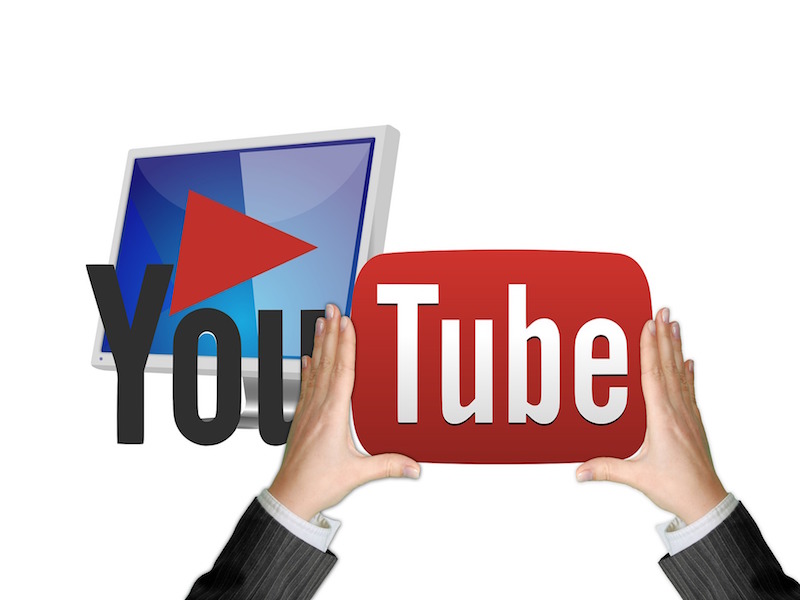- Home
- Social networking
- Social networking News
- UK Tells YouTube Bloggers to Slap 'Advert' Stickers, Will India Follow Suit?
UK Tells YouTube Bloggers to Slap 'Advert' Stickers, Will India Follow Suit?

As more creators start using YouTube to showcase their work, we finally have a clarification of sorts on how they can advertise on their YouTube channels. The Committee for Advertising Practice (CAP), the group of people that write advertising code, has released its first guidance to inform video bloggers (vloggers) that they need to let their viewers know if they have been paid by an advertiser to promote a product. Can a similar guideline be expected in India?
YouTube creators aren't legally obligated to let their viewers know if a product they are talking about or showing on the screen has been paid for by an advertiser. But things started to change last year when many videos were banned after learning that their respective creators didn't disclose that they had been paid to promote the product.
But now YouTube creators and other video bloggers in the UK will have to either verbally or by text signposting specify that they have entered into a commercial relationship with the advertiser. They are urged to use terms like "sponsored by," "commercial," or "advert" at the beginning of the video itself.
"The advertising rules do not cover or prohibit vloggers entering into commercial relationships and the Advertising Standards Authority (ASA) does not regulate editorial opinion," the CAP said. "In response to feedback from vloggers, however, we and the ASA are also reminding brands and agencies (be they advertising, digital or PR) looking to partner with vloggers of the need to be transparent."
Everything isn't completely clear yet, however. For instance, the CAP noted that if a vlogger receives a unit from an advertiser but has full authority over how the final video should look like, it is not necessary to mention that the product was provided by an advertiser.
It all began in November 2014 when five YouTube videos showcasing a "Oreo Licking Race" were banned due to adjudication by Advertising Standards Authority. The creators hadn't mentioned in the video that Oreo owner Mondelēz International had paid them. Since then a couple of more videos have been pulled from YouTube.
Currently in India there are no such rules in place. YouTube creators are often paid by advertisers for product promotions, and several other times, the end result of the video is set by the advertiser. The YouTube creators in the country aren't obligated to disclose a paid promotion in their videos. "There's no legal obligation for us to reveal that a product we promoted was paid for by an advertiser," said Abhishek Bhatnagar, an India-based YouTube creator. "In my opinion, it is our duty to let viewers know of such things, though"
As more people flock away from TV to YouTube for content, and creators and advertisers get more serious, it is in the best interest of a viewer to know that the good things they are hearing about a product is because the creator was paid to say it. Otherwise, nothing is stopping the creators from taking money from advertisers and promote their products and present it as a sponsor-free content. And it would be misleading because many people won't be able to tell if what they just saw was an advertisement, or an honest product review.
For the latest tech news and reviews, follow Gadgets 360 on X, Facebook, WhatsApp, Threads and Google News. For the latest videos on gadgets and tech, subscribe to our YouTube channel. If you want to know everything about top influencers, follow our in-house Who'sThat360 on Instagram and YouTube.
Related Stories
- Samsung Galaxy Unpacked 2025
- ChatGPT
- Redmi Note 14 Pro+
- iPhone 16
- Apple Vision Pro
- Oneplus 12
- OnePlus Nord CE 3 Lite 5G
- iPhone 13
- Xiaomi 14 Pro
- Oppo Find N3
- Tecno Spark Go (2023)
- Realme V30
- Best Phones Under 25000
- Samsung Galaxy S24 Series
- Cryptocurrency
- iQoo 12
- Samsung Galaxy S24 Ultra
- Giottus
- Samsung Galaxy Z Flip 5
- Apple 'Scary Fast'
- Housefull 5
- GoPro Hero 12 Black Review
- Invincible Season 2
- JioGlass
- HD Ready TV
- Laptop Under 50000
- Smartwatch Under 10000
- Latest Mobile Phones
- Compare Phones
- Oppo A5 Pro 5G
- Vivo Y29 5G
- Honor Magic 7 RSR Porsche Design
- Moto G15 Power
- Moto G15
- Realme 14x 5G
- Poco M7 Pro 5G
- Poco C75 5G
- Asus Zenbook S 14
- MacBook Pro 16-inch (M4 Max, 2024)
- Honor Pad V9
- Tecno Megapad 11
- Redmi Watch 5
- Huawei Watch Ultimate Design
- Sony 65 Inches Ultra HD (4K) LED Smart TV (KD-65X74L)
- TCL 55 Inches Ultra HD (4K) LED Smart TV (55C61B)
- Sony PlayStation 5 Pro
- Sony PlayStation 5 Slim Digital Edition
- Blue Star 1.5 Ton 3 Star Inverter Split AC (IC318DNUHC)
- Blue Star 1.5 Ton 3 Star Inverter Split AC (IA318VKU)

















